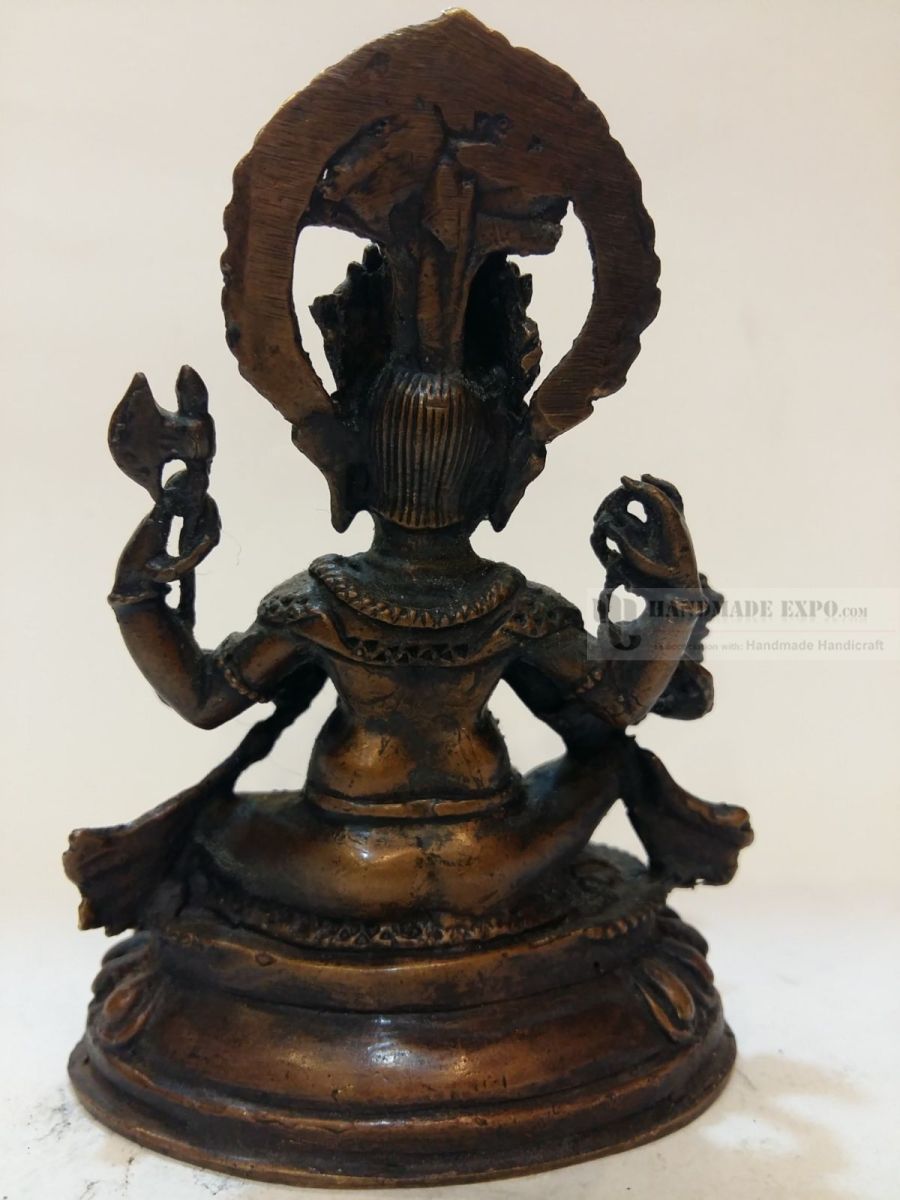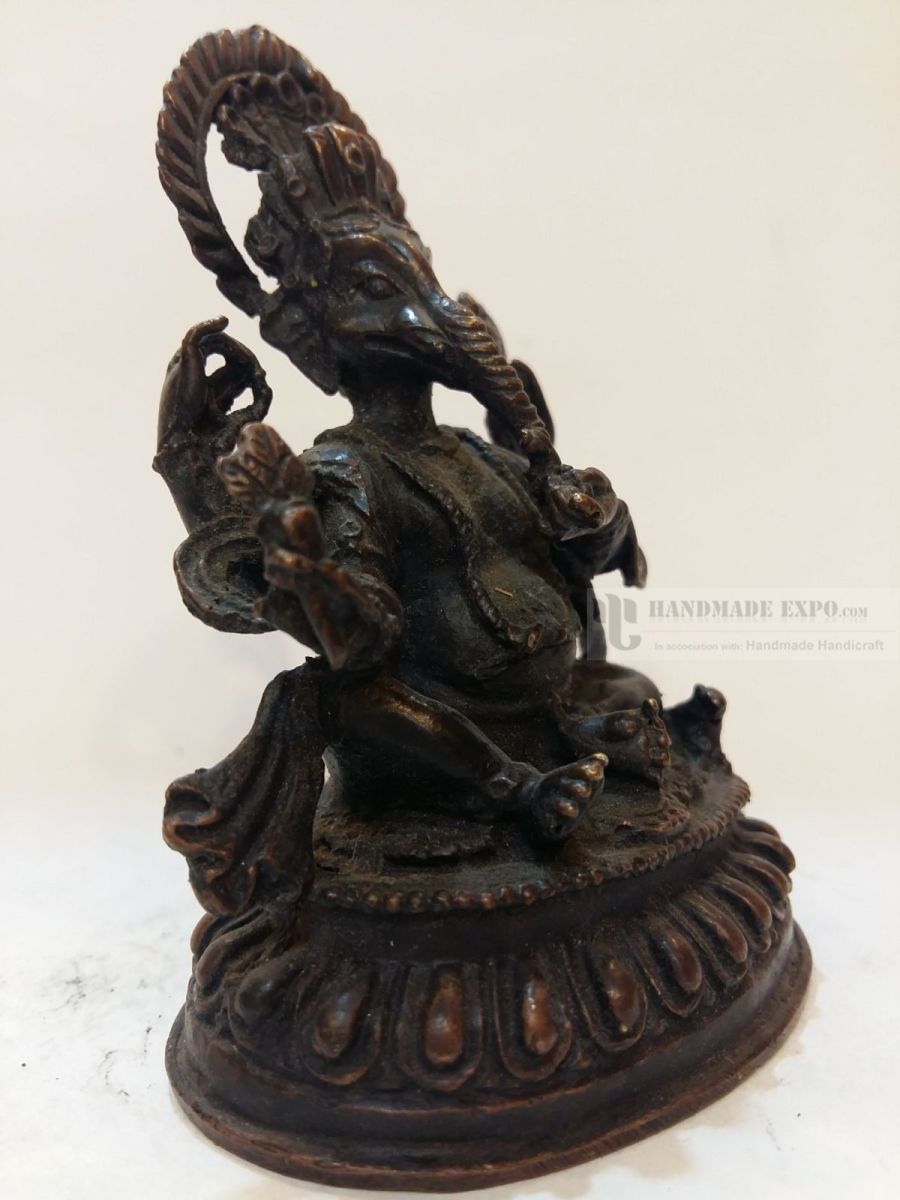Code
HCS13320
Weight
500 gm / 1.1 lbs
Size
Height
12cm (5") Width
8cm (3") Depth
6cm (2") Material
Brass
Availability
Available
Date Added
2017-09-10 18:20:00
Note : We used to sell this product 8 years ago so it may no longer be in our stock.
It is possible that we still have it with our suppliers but the price could be different from before.
Feel free to order. We will verify availability and inform you promptly.
It is possible that we still have it with our suppliers but the price could be different from before.
Feel free to order. We will verify availability and inform you promptly.

Safe Payment
We accept Paypal, Money Transfer, Bank Transfer
Confidence
Protection covers your purchase and personal data.
Worldwide Delivery
We ship Worldwide, except Russia.Shipping cost US$25.2 for upto 0.5 kgs

Hotline
Talk to help line for your question on 9841267335About Chocolate Oxidized
This Siddhartha Gautam Buddha Statue - Oxidized has been meticulously treated with a chocolate color antique patina. The intention behind this patina is to replicate the appearance of a copper statue that has gracefully aged over a century. Unlike a simple coat of paint, this patina is not applied superficially and is designed to endure. It undergoes an artificial oxidation process that adds depth and character, while also serving as a protective layer against natural oxidation.
By imitating the natural aging process, the chocolate color antique patina lends an air of authenticity and vintage charm to the Siddhartha Gautam Buddha Statue - Oxidized. This carefully crafted finish ensures that the patina remains intact for an extended period, offering longevity and resistance to wear. The result is a unique piece that captures the essence of a time-worn copper statue, evoking a sense of history and artistic heritage.
This Siddhartha Gautam Buddha Statue - Oxidized has been meticulously treated with a chocolate color antique patina. The intention behind this patina is to replicate the appearance of a copper statue that has gracefully aged over a century. Unlike a simple coat of paint, this patina is not applied superficially and is designed to endure. It undergoes an artificial oxidation process that adds depth and character, while also serving as a protective layer against natural oxidation.
By imitating the natural aging process, the chocolate color antique patina lends an air of authenticity and vintage charm to the Siddhartha Gautam Buddha Statue - Oxidized. This carefully crafted finish ensures that the patina remains intact for an extended period, offering longevity and resistance to wear. The result is a unique piece that captures the essence of a time-worn copper statue, evoking a sense of history and artistic heritage.
Ceramic Molding System
The Siddhartha Gautam Buddha Statue - Oxidized has been crafted using the Ceramic mold casting process, a modern approach that provides an alternative to traditional methods such as the lost-wax system or rubber molding. Also referred to as ceramic molding, this technique involves the creation of a ceramic mold to cast the statue. The process begins by making a precise and detailed wax model of the desired sculpture. The wax model is then coated with layers of ceramic material, creating a sturdy mold. Once the mold is complete, it is fired in a kiln, causing the wax to melt and escape, leaving behind a cavity that perfectly replicates the original sculpture. Molten metal is then poured into the mold, allowing it to fill the cavity and take on the desired form. Once cooled and solidified, the ceramic mold is carefully broken away, revealing the final metal statue. Read More . . .
The Siddhartha Gautam Buddha Statue - Oxidized has been crafted using the Ceramic mold casting process, a modern approach that provides an alternative to traditional methods such as the lost-wax system or rubber molding. Also referred to as ceramic molding, this technique involves the creation of a ceramic mold to cast the statue. The process begins by making a precise and detailed wax model of the desired sculpture. The wax model is then coated with layers of ceramic material, creating a sturdy mold. Once the mold is complete, it is fired in a kiln, causing the wax to melt and escape, leaving behind a cavity that perfectly replicates the original sculpture. Molten metal is then poured into the mold, allowing it to fill the cavity and take on the desired form. Once cooled and solidified, the ceramic mold is carefully broken away, revealing the final metal statue. Read More . . .
About Buddha :
Gautama Buddha, popularly known as the Buddha, He is regarded as the founder of the world religion of Buddhism, and revered by most Buddhist schools as a savior, the Enlightened One who rediscovered an ancient path to release clinging and craving and escape the cycle of birth and rebirth. He taught for around 45 years and built a large following, both monastic and lay. His teaching is based on his insight into the arising of duḥkha and the ending of duhkha the state called Nirvana
The Buddha was born into an aristocratic family in the Shakya clan but eventually renounced lay life. According to Buddhist tradition, after several years of mendicancy, meditation, and asceticism, he awakened to understand the mechanism which keeps people trapped in the cycle of rebirth. The Buddha then traveled throughout the Ganges plain teaching and building a religious community. The Buddha taught a middle way between sensual indulgence and the severe asceticism found in the Indian śramaṇa movement. He taught a training of the mind that included ethical training, self-restraint, and meditative practices such as jhana and mindfulness. The Buddha also critiqued the practices of Brahmin priests, such as animal sacrifice and the caste system.
A couple of centuries after his death he came to be known by the title Buddha, which means "Awakened One" or "Enlightened One". Gautama's teachings were compiled by the Buddhist community in the Vinaya, his codes for monastic practice, and the Suttas, texts based on his discourses. These were passed down in Middle-Indo Aryan dialects through an oral tradition. Later generations composed additional texts, such as systematic treatises known as Abhidharma, biographies of the Buddha, collections of stories about the Buddha's past lives known as Jataka tales, and additional discourses, i.e. the Mahayana sutras.
A couple of centuries after his death he came to be known by the title Buddha, which means "Awakened One" or "Enlightened One". Gautama's teachings were compiled by the Buddhist community in the Vinaya, his codes for monastic practice, and the Suttas, texts based on his discourses. These were passed down in Middle-Indo Aryan dialects through an oral tradition. Later generations composed additional texts, such as systematic treatises known as Abhidharma, biographies of the Buddha, collections of stories about the Buddha's past lives known as Jataka tales, and additional discourses, i.e. the Mahayana sutras.



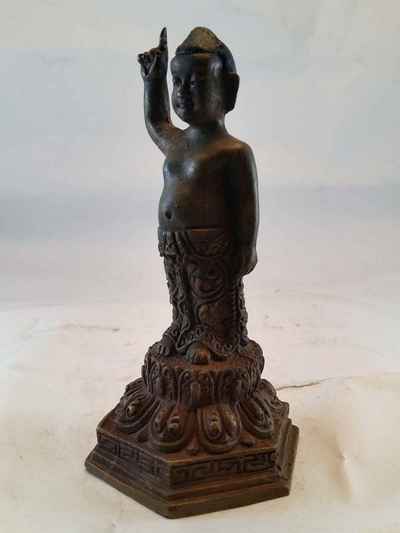
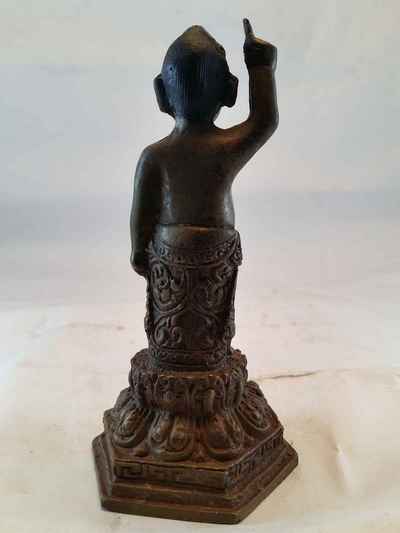
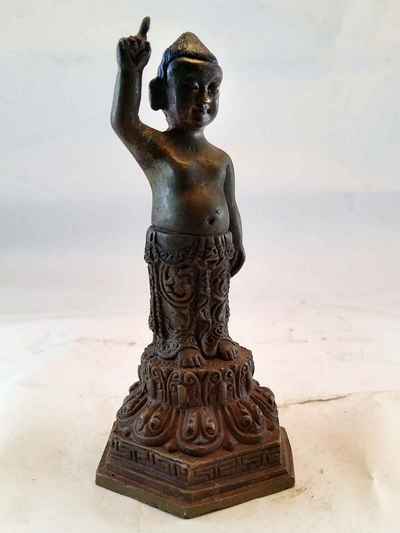

 of, Ksitigarbha - Bodhisattva,
of, Ksitigarbha - Bodhisattva, 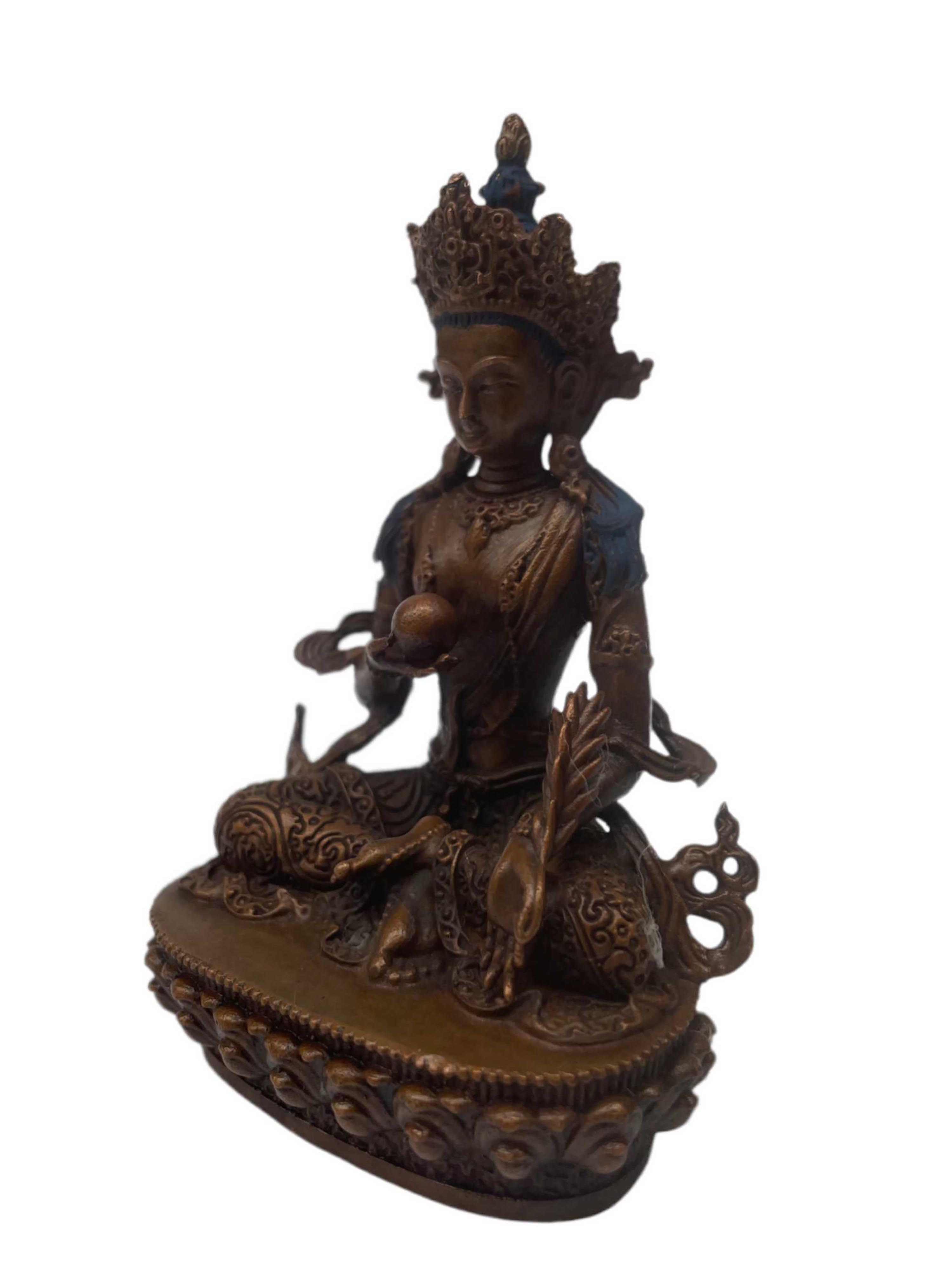 of, Ksitigarbha - Bodhisattva,
of, Ksitigarbha - Bodhisattva, 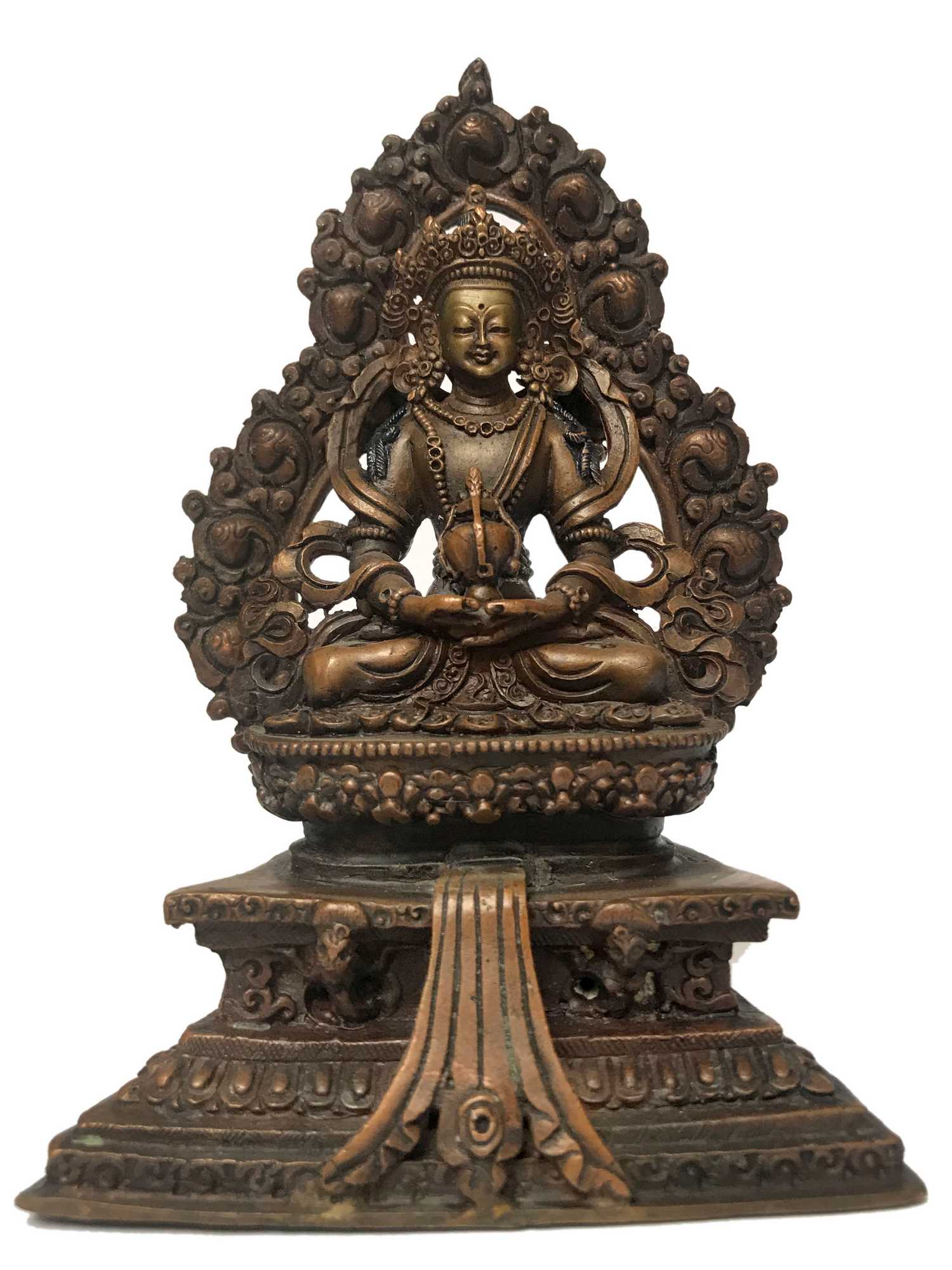 of Amitayus, Aparimita, On Throne
of Amitayus, Aparimita, On Throne 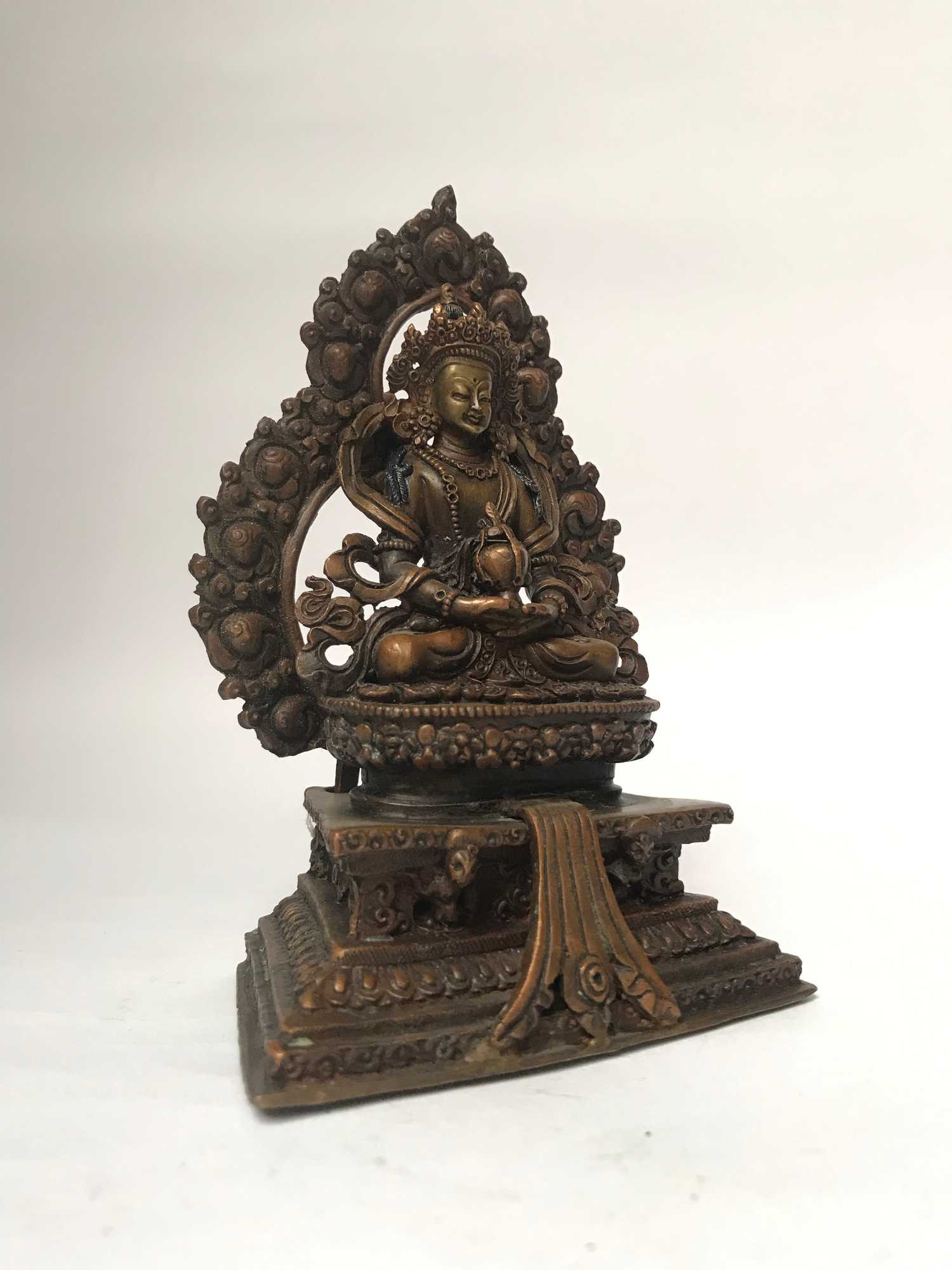 of Amitayus, Aparimita, On Throne
of Amitayus, Aparimita, On Throne  of Vajrasattva Antique Finishing" title="Small High Quality Statue
of Vajrasattva Antique Finishing" title="Small High Quality Statue 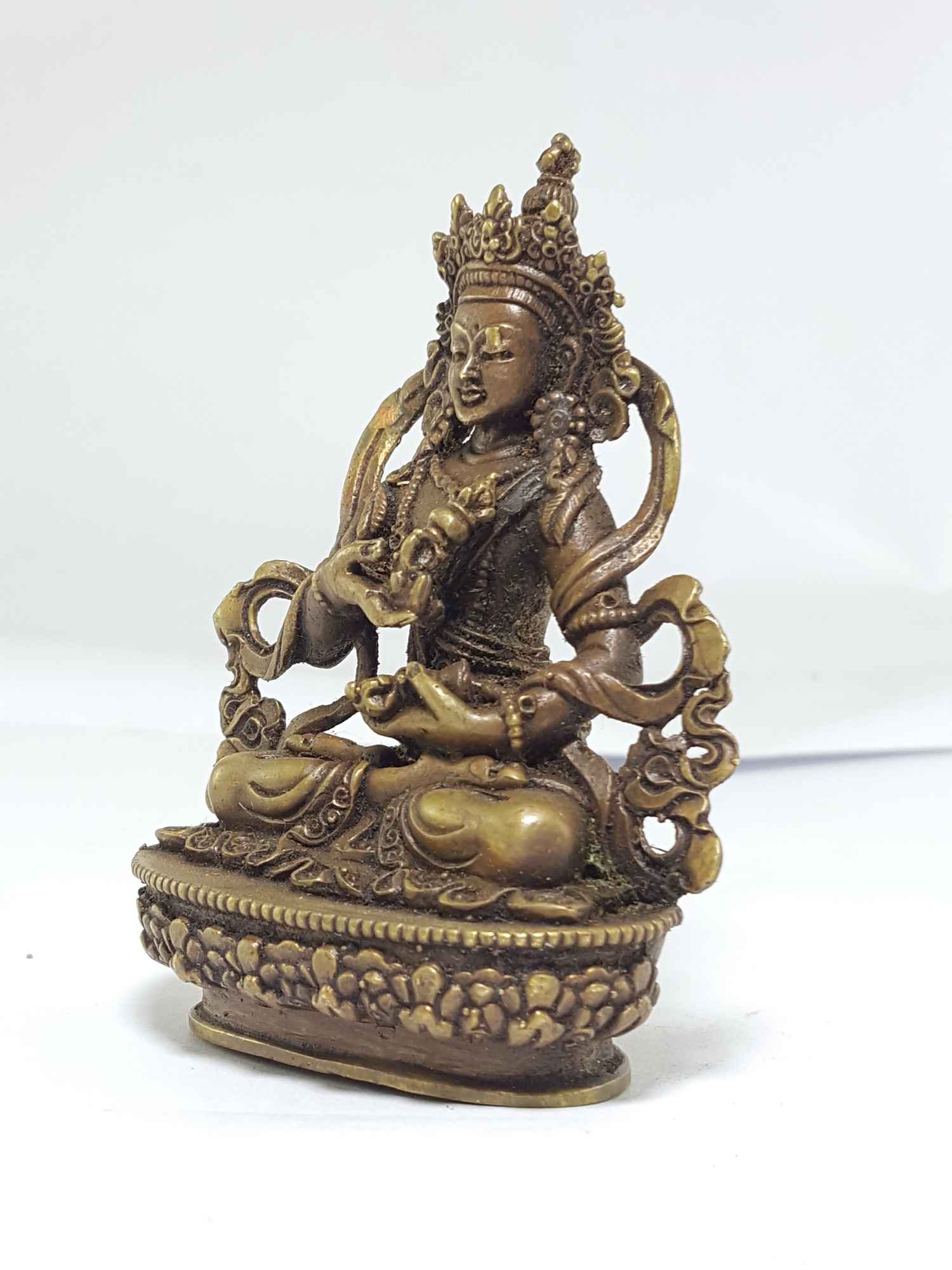 of Vajrasattva Antique Finishing" title="Small High Quality Statue
of Vajrasattva Antique Finishing" title="Small High Quality Statue  of Padmasambhava,
of Padmasambhava, 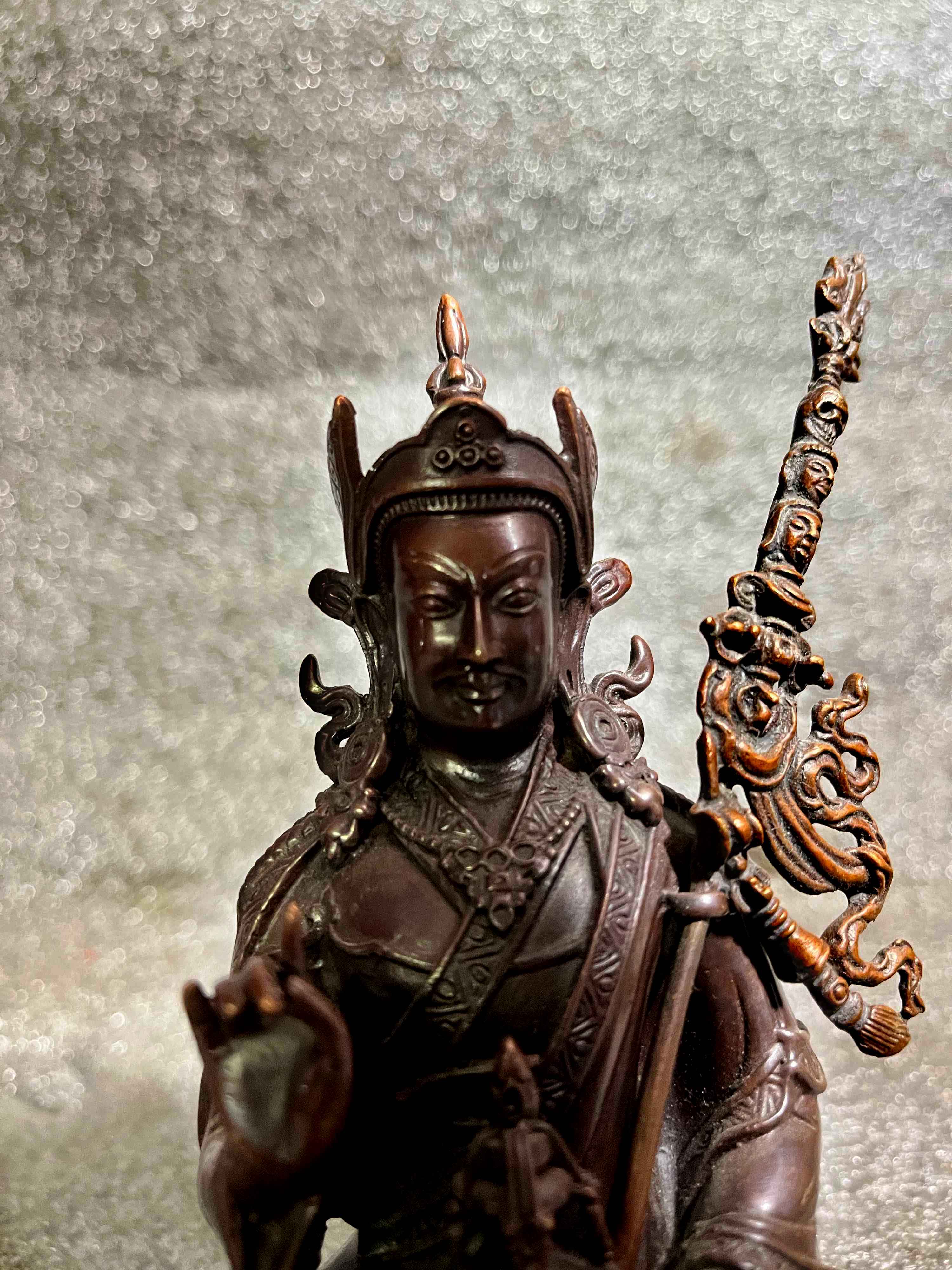 of Padmasambhava,
of Padmasambhava,  of Lakshmi,
of Lakshmi, 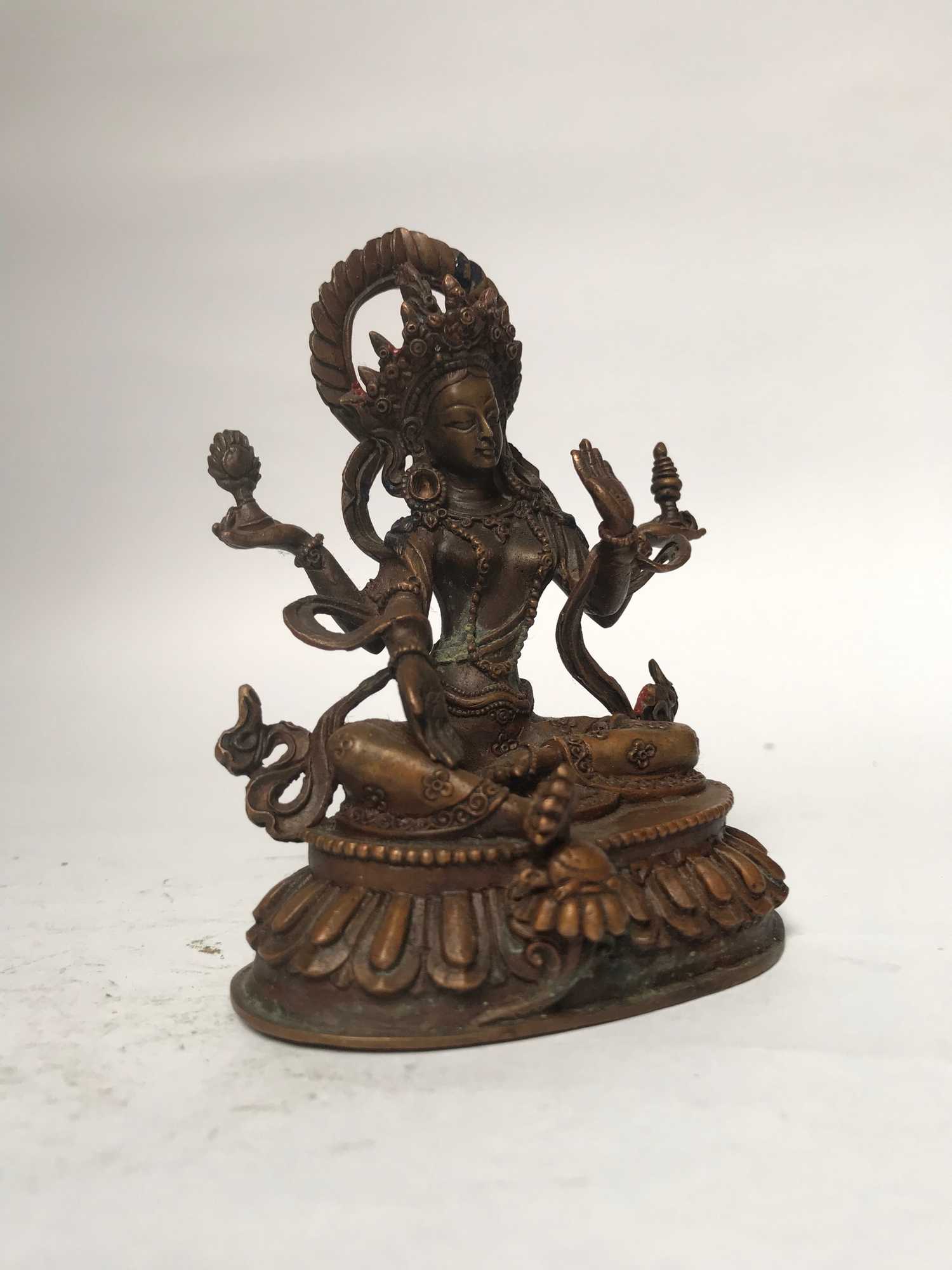 of Lakshmi,
of Lakshmi,  of Amitayus Aparimita,
of Amitayus Aparimita,  of Amitayus Aparimita,
of Amitayus Aparimita,  of Green Tara,
of Green Tara,  of Green Tara,
of Green Tara, 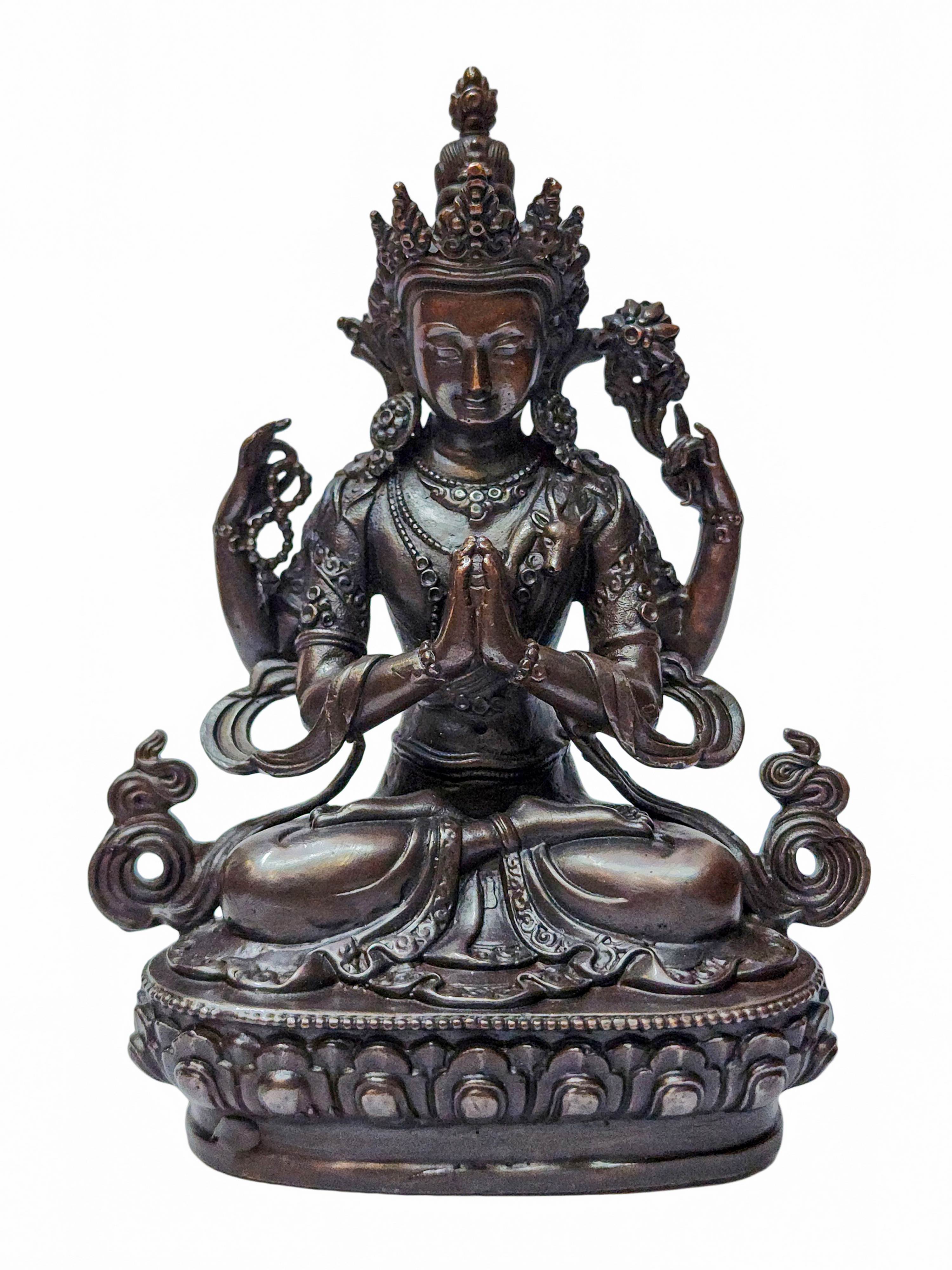 Chocolate Oxidized" title="Chenrezig, Buddhist Miniature Statue,
Chocolate Oxidized" title="Chenrezig, Buddhist Miniature Statue, 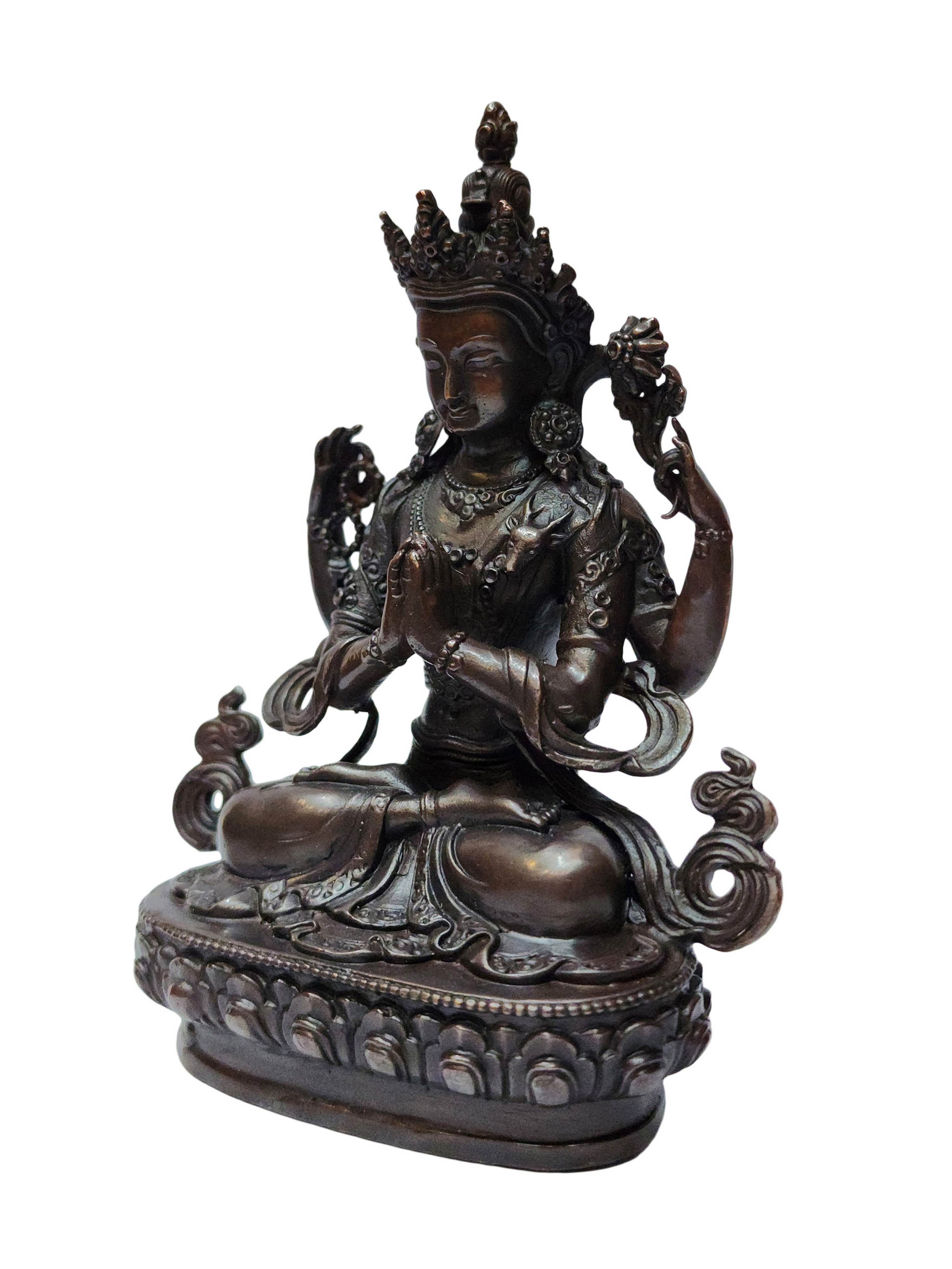 Chocolate Oxidized" title="Chenrezig, Buddhist Miniature Statue,
Chocolate Oxidized" title="Chenrezig, Buddhist Miniature Statue,  Chocolate Oxidized" title="Tibetan Phurba,
Chocolate Oxidized" title="Tibetan Phurba, 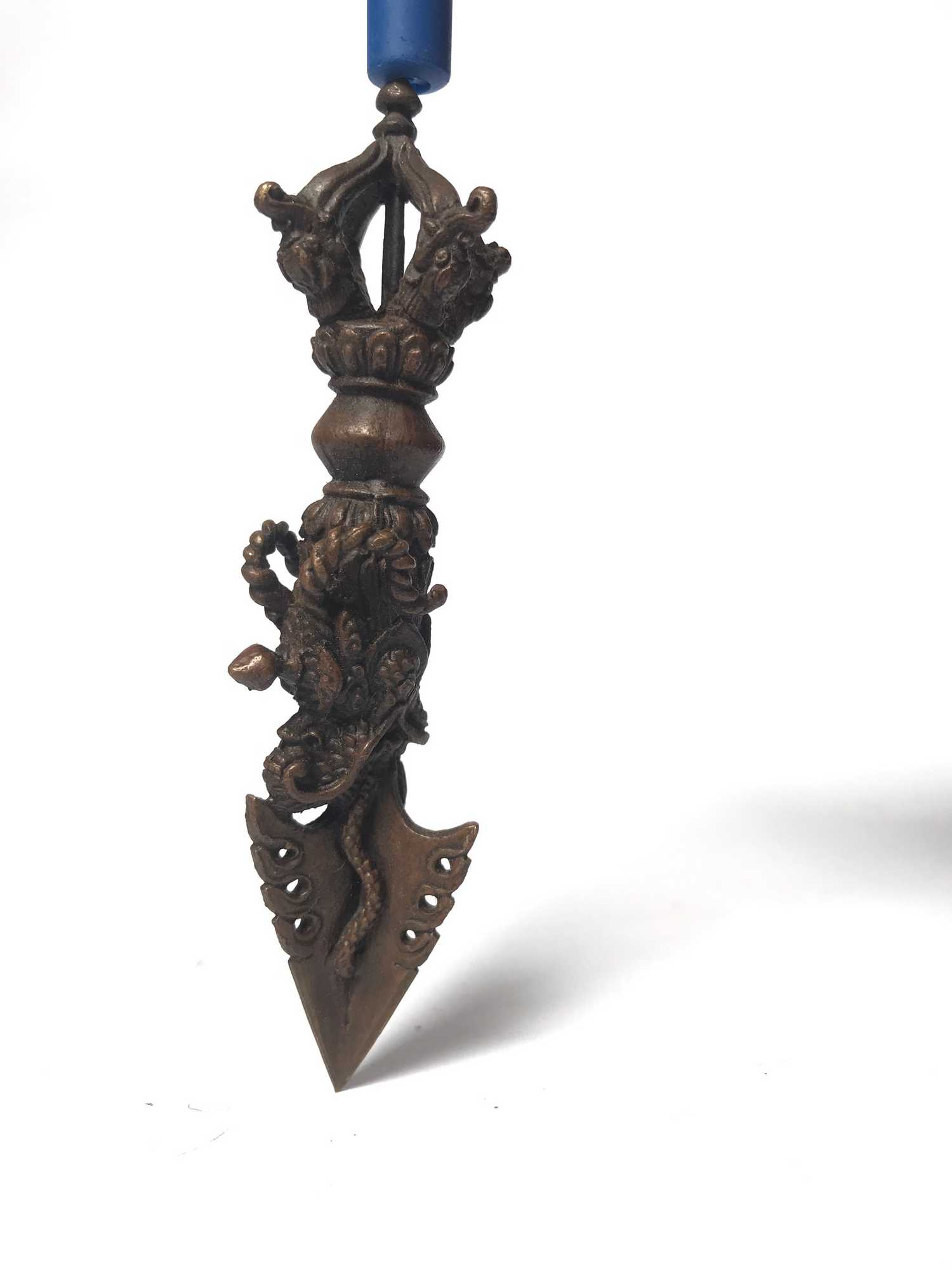 Chocolate Oxidized" title="Tibetan Phurba,
Chocolate Oxidized" title="Tibetan Phurba, 